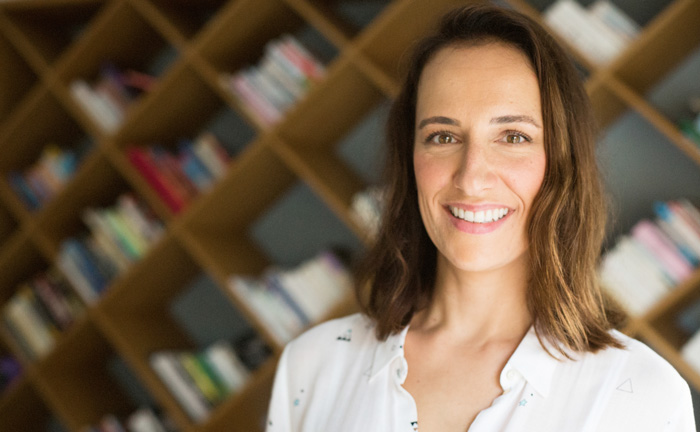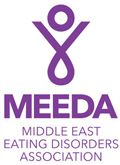Struggling with the many facets of isolation
Hyperventilating at the doom and gloom media share on public health, scarcity, economics
Worried about health, family, money, food, the future
Obsessing over potential weight gain
Wondering how much you (should) exercise while confined
Constantly comparing yourself to other people
‘Shoulding’ yourself into redecorating, learning the guitar or cooking from scratch,
Unable to ground yourself while occupying/’crisis’ schooling children 24/7
Potentially grieving…
THIS IS SO SO HARD.
And also
YOU ARE NOT ALONE in feeling these difficult feelings.
Needless to say that despite re-establishing a healthy relationship with food and my body, my tendency to anxiety and negative self-talk is certainly still a work in progress. Add to this a pandemic + potential financial worries + isolation + parenting 24/7 + ‘crisis’ schooling (a term coined by Virginia Sole-Smith that sounded so much closer to reality than ‘homeschooling’ which would have NEVER IN A MILLION YEARS been my choice) and you know we are ALL desperate for ways to nurture self-care, resilience and whatever sense of safety we could salvage from this mess.
In these difficult circumstances, I have collected some of my own tools and other experts’ advice on surviving this really difficult and stressful period. PS: I am deliberately using the word ‘surviving’. Because thinking someone can ‘thrive’ among so much upheaval in the world would be nothing be a lie.
1/ Grounding
– If you find yourself triggered over the constant flow of negative news, limit your information intake or time on social media with a timer / to a specific set of programmes
– Remember you do NOT have to be productive right now. Simply existing or trying to keep your head above the water is not only enough, but better to maintain lower level of stress. Attempting to make every second of your confined time ‘productive’ is not only a fallacy but bound to bring feelings of disappointment and lower self-esteem. Not worth it. More on it in this brilliant article.
– Sit with difficult emotions or learn to meditate, through apps like Calm or Insight timer.
– Weekly Instagram Lives with Mindful me (Mondays 7pm Dubai Time) and Mindful parenting (Thursday 10am Dubai time)
– Deep breathing exercises (type Square breathing in Google and enjoy)
– Stretching can also be a great technique to reconnect to your body and the present moment
– FACE COVID: a great video to address the situation with calm and concrete tools to reduce anxiety
– The Mighty also proposes many interesting ways to support people’s mental health during this crisis
– If all else fails, reach out to a therapist or psychiatrist. Most of them offer virtual sessions now. See my recommendations here.
2/ Moving
Here are some great people helping you move without selling you a side of body hate:
– Amber Karnes, Body Positive Yoga
– Ilya, Decolonizing Fitness (seems especially appropriate if you are starting to exercise again)
– Louise Green, Big Fit Girl (strength, running, mobility)
– Jessamyn Stanley, Everybody Yoga
– Studio 44 Wellness (dance, barre, drums)
– Body Positive Fitness (movement, lifting, yoga)
– Body Positive Bootcamp (mobility, balance, strength)
3/ Laughing
– Hats off to the women that make me laugh these days @Noshameparenting @celestebarber @victoriaemes @georgiebradley6
4/ Eating
Count on diet culture to transform the worse public health crisis of the last century into a SALES OPPORTUNITY. [gagging reflex] Messages from ‘wellness’ coaches and other ‘personal trainers-improvising-themselves-dietitians’ made their way onto our social media feeds. They told us we should fear potential weight gain, we should ‘watch’ what we eat, we should ‘move more’, we should ‘eat less’, we should reach for more protein, we should ‘avoid comfort foods’ all under the cover of ‘health’. They’ll make us feel guilty for stocking basic essential foods at a time we question our ability to survive (even if only economically) and tell us these staples are evil. They’ll totally ignore the fact rice or pasta are filling, affordable, comforting at a time of high anxiety. They’ll want us to feel threatened and inadequate. Because then we’ll buy their stuff. They’ll pretend this will protect us, they’ll make it about health, or about control. Their words are filtering our psyche, and create yet MORE discomfort through that extra cognitive dissonance (as if isolating, losing our jobs and fearing for more vulnerable family members or the rest of our community was not enough).
The reality is very different:
– Reaching for comfort food when our world is turned upside down is a NORMAL attempt at reducing our stress. It doesn’t have to be shamed or fought against or forbidden. In fact, it is when bodies are trusted and listened to, that we have a better opportunity to reach true balance and nurture long term health.
– Reaching for ‘perfect nutrition’ or ‘perfect movement’ in times of stress is not unusual but incredibly ineffective at creating long term health outcomes (think of ‘The biggest loser’s terrible backlash). It is especially dangerous to our mental health when we are already facing massive changes and a high degree of uncertainty.
The best thing you can do right now, is to listen to your body and recognise it is enough – as is. Effectively keeping in mind that thoughts about your body being inappropriate are only a reflection of the tsunami of sales and marketing messages out there. Of sectors making tons of money of our insecurities. Let’s rally against these unethical practices by refusing to act on those thoughts, and by practicing body trust instead.
Stock the pantry with whatever is possible for you. Aim to choose foods you love and a choice as diverse as possible, with plenty of fruits and vegetables (fresh or frozen). Remember pleasure is a key component of nutrient absorption. So make yourself stuff you truly enjoy. And don’t fall for the obsessive, macro-counting ways of diet culture. It will only offer temporary relief from stress, but will backfire overtime.
Right now, finding comfort and emotional support in our favourite dishes should not be dismissed but seen as self-care, a health-promoting measure of survival.
Our bodies are smarter than diet culture likes to make us believe. Even if you gain a little weight in confinement, there is a good chance that, if you simply listen to your needs, your weight will level off again as you start leaving the house again, going back to the old routine after a period of confinement. Read here why micro-managing your body was never needed in the first place.
Maybe now is the time to work on nurturing body neutrality with these few simple steps. Working with affirmations can help too, if body anxiety gets to you: “I am learning to stay safe and to nurture my mental & physical health in times of crisis. Nurturing my health includes trusting my body and adopting a more neutral stance towards my weight. Right now and for many generations before me, survival has always involved eating enough of all available foods, without shame or guilt. Finding comfort in food is not only natural but also a basic survival need for me right now.”
5/ Connecting
– Making regular appointments with friends and family to talk virtually is really key right now, or trying to talk from a distance if talking online is not available (i am thinking of older generations possibly stuck in retirement homes).
– Many people also found support in the general clapping happening every evening to thank healthcare professionals risking their lives to help us all. So if you find yourself largely isolated, make sure to join the clapping at 8pm most nights all over the world.
– If you are currently recovering from disordered eating, meal support is available for free through different groups of HAES dietitians and practitioners: one is led by RD Anna Sweeney and another one run via the Instagram account @covid19eatingsupport.
– If your direct family is abusive, there is support out there. Many countries set up helplines or ways to report abuse discreetly through pharmacy visits. In the UAE, the Dubai Foundation for Women and Children has a helpline on 800111 or sms 5111
6/ Silver lining
-If you haven’t tried that before, consider writing down 3 things that brought you joy every day, in a little notebook or on notes in your phone. Overtime, it is known to help with recognising positives in whatever situation. I have started a gratitude challenge too, so feel free to DM me your gratitudes every day if you feel like you need to be held accountable!
7/ (for parents) Mediocring
Ok, that’s not really a word. As parents are all ‘crisis’ schooling right now, it is important to review our expectations, because the situation is totally new and unknown, but also because we are asked to multitask in truly impossible ways [More on that in this revealing article]. So what I mean is lowering our standards. If needed, aaaaall the way to the ground. Because whatever happens in confinement, all our kids truly need is our presence and our love. And they certainly don’t need us all frazzled and upset about school assignements and virtual deadlines.
It is also important to nurture self-compassion as our roles as parents suddenly became super overwhelming. Free self-compassion exercises can be found here.





[…] weight, in this ‘crisis’ context. I have also listed many free resources for people in recovery here. And I am personally hoping to support anyone wishing to make peace with food and their bodies, in […]